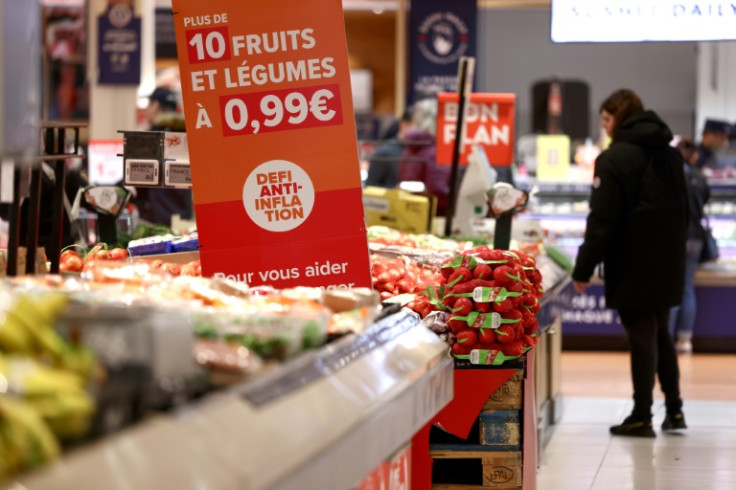Britain seeks to lower the cost-of-living crisis with new measures tackling fake reviews and product labelling
More than half of the traders in the transport, hospitality and entertainment sectors indulge in drip pricing and fake reviews, which the UK government is trying to eradicate to lower the cost-of-living crisis.

The UK announces new measures to tackle fake reviews with hopes of reducing the effects of the cost-of-living crisis in the nation and providing some relief to British consumers.
On Monday, September 4, the Department for Business and Trade announced a crackdown on hidden fees and fake reviews to help customers in the country.
The new business measures are part of government efforts to boost transparency and reduce the consumer burden as fake reviews, confusing labels and hidden fees affect the way people shop in the UK.
The British government revealed that three-quarters of transport sector products have hidden fees buried in them which is adding to the cost-of-living crisis. Hence the government has sought new consultations to clamp down on such practices, making way for a fairer customer journey.
A wide range of products will fall under the purview of this crackdown including groceries and food items, train and flight tickets.
The new consultations launched on September 4, is part of the UK government's agenda to lessen the cost-of-living burden of people as initiated by Prime Minister Rishi Sunak in June. The British government seeks to inform consultations about drip pricing through a new research analysis published on Monday.
As per research, UK consumers are paying £1.6 billion online every year because of drip pricing which increases the product prices at the time of checkout. Around 72 per cent of service providers from the transport and communications industry indulge in such malpractices followed by 56 per cent from the hospitality industry and 54 per cent from the entertainment industry.
This comes at a time when experts have warned of hard-to-contain global food inflation as a fallout of Russia exiting the Black Sea grain deal.
The UK government also launched a consultation to simplify product labelling on goods as proposed by a recent review done by the Competition and Markets Authority (CMA). This initiative is part of the Price Marking Order (PMO) reform.
Under the new PMO guidelines, traders need to display the final selling price of the products on the labels. The product labels should have the final unit price like price per kilogram/litre.
New fake reviews tackling measures to promote responsible consumerism
Speaking about the newly launched measures, the UK Minister for Enterprise, Markets and Small Business, Kevin Hollinrake said the consultation will provide accurate product information to the UK consumers.
Hollinrake ascertained that the government welcomes feedback from industries regarding the new regulations. The government doesn't want to add to the burden of businesses through this consultation. Rather it wants to provide a safety net for the consumers in the UK, said the Minister.
The Minister further underlined why this is a crucial step in lowering the extent of the cost-of-living crisis in the UK as everything from supermarkets to digital trolleys have hidden fees and fake reviews which makes it difficult for the consumers to choose the right product.
In a separate consultation launched on Monday, the government has sought views on the measures to stop fake reviews. This was initially a part of the Digital Markets, Competition and Consumers Bill (DMCC).
Hollinrake further revealed the goal of this measure is to let businesses take ownership of reviews shared on their websites. By eradicating the purchase and sale of fake reviews the government wants to promote responsible consumerism which has the interest of both the consumers and the traders, said Hollinrake.
Through the new product labelling rule the government is trying to ascertain uniformity and consistency in unit pricing which will help the UK consumers to compare and purchase products easily. The prices won't vary depending on special offers and promotions, revealed the Minister.
This comes at a time when a recent report highlighted that 82 per cent of shoppers come across out-of-stock products in the supermarkets.
New guidelines to help UK consumers make informed choices
The CEO of the Competition and Markets Authority, Sarah Cardell said that the CMA is pleased to see that the government has tightened the consumer pricing rules based on their suggestions.
She called it an essential step for greater transparency in goods and services. The CMA will update the consultation with necessary feedback and assessments later this year, said Cardell.
Rocio Concha, the director of policy and advocacy at Which?, highlighted how businesses lose revenues and sales due to fake reviews as the trust of customers is shaken by them.
Concha said that supermarkets should make things easier for UK consumers by clearly displaying the unit prices of everyday items. Customers can make an informed decision then which will reduce the extent of the cost-of-living crisis, he added.
The Assistant Director for Consumer Policy at the British Retail Consortium (BRC), Graham Wynn, said the new measures will provide a level playing field to all consumers and the BRC supports it.
The BRC is eager to provide constructive feedback on the proposal and hopes that the rules will be updated according to changes in buying and selling methods, Wynn added.
Earlier in August, the UK government extended CE marking use and reviewed the fire safety and product safety regulations. These measures along with a crackdown on fake reviews through the DMCC Bill will reduce malpractices like subscription traps and lessen the burden of traders, said Wynn.
© Copyright IBTimes 2025. All rights reserved.






















